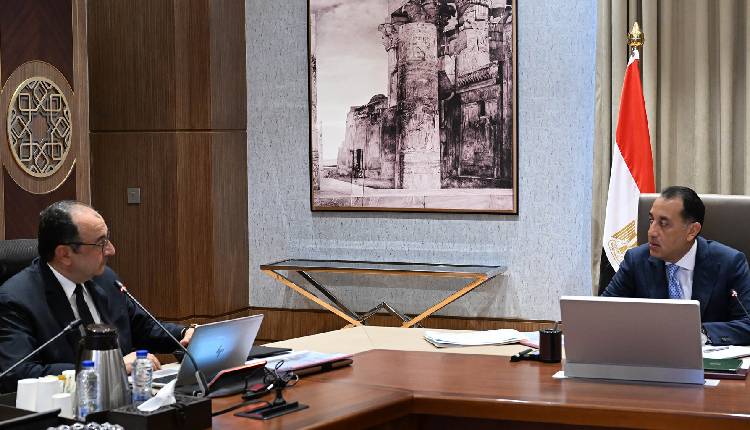Egyptian Prime Minister Moustafa Madbouly on Tuesday called for continued efforts to enhance the performance of state-owned companies affiliated with the Ministry of Public Enterprise Sector, as part of a broader drive to improve governance of state-owned assets and maximise returns.
Madbouly made the remarks during a meeting with Public Enterprise Minister Mohamed Shimi, where he stressed the importance of strengthening the competitiveness of these firms and upgrading staff capabilities in line with Egypt’s 2030 Vision for sustainable development.
He also instructed the ministry to deepen partnerships with the private sector by offering a number of projects for joint management and operation, which, he said, would improve returns and safeguard investments.
Ministry’s 2024–2027 strategy aligns with Egypt’s Vision 2030 and State Ownership Policy
The ministry’s strategy for 2024 to 2027 aligns closely with Egypt’s Vision 2030, the State Ownership Policy, and the Government Plan (2024-2027). This approach includes divesting from certain sectors, maintaining or reducing investments in others, and ensuring continued state presence in strategically and socially important industries—all while promoting projects in partnership with the private sector, Minister Shimi said.
Central to the ministry’s vision is maximising returns on state investments and enhancing the competitiveness of public sector companies both locally and internationally. This will be achieved by improving company performance, modernising management practices, adopting new technologies, and developing human resources, he added.
97 strategic projects underway in key sectors with growing economic performance
Minister Shimi said the public sector companies have seen steady growth in revenues and net profits since FY2014/2015. Export revenues from goods and services reached $860 million by the third quarter of FY2024/2025, compared to $668 million in FY2023/2024.
Revitalising spinning, weaving, garment, metal, and automotive industries
Shimi also reviewed initiatives to optimise the use of production assets, highlighting projects to develop and localise textile and garment industries, as well as the metallurgy, specialised chemicals, pharmaceuticals, medical supplies, construction, tourism, hotel and retail sectors.
He provided an update on the national textile industry development plan, noting that phase one—representing 18 per cent of the overall upgrade—has been completed. Phase two, covering 28 per cent, is 70 per cent finished and is expected to conclude this year. Phase three, the largest at 54 per cent, is currently 54 per cent complete, with completion targeted for 2026.
Regarding investment opportunities, Shimi said the ministry has identified 52 prospects across various sectors, including 16 in metals and mining, 11 in tourism, 5 in pharmaceuticals, 5 in real estate development, 3 in land reclamation, 7 in cotton and textiles, and 5 in chemicals.
He also pointed to memoranda of understanding signed with domestic and international private companies in sectors such as aluminium, fertilisers, nutritional supplements, biologics, electric vehicles and tyres.
Attribution: Amwal Al Ghad English
Subediting: M. S. Salama


